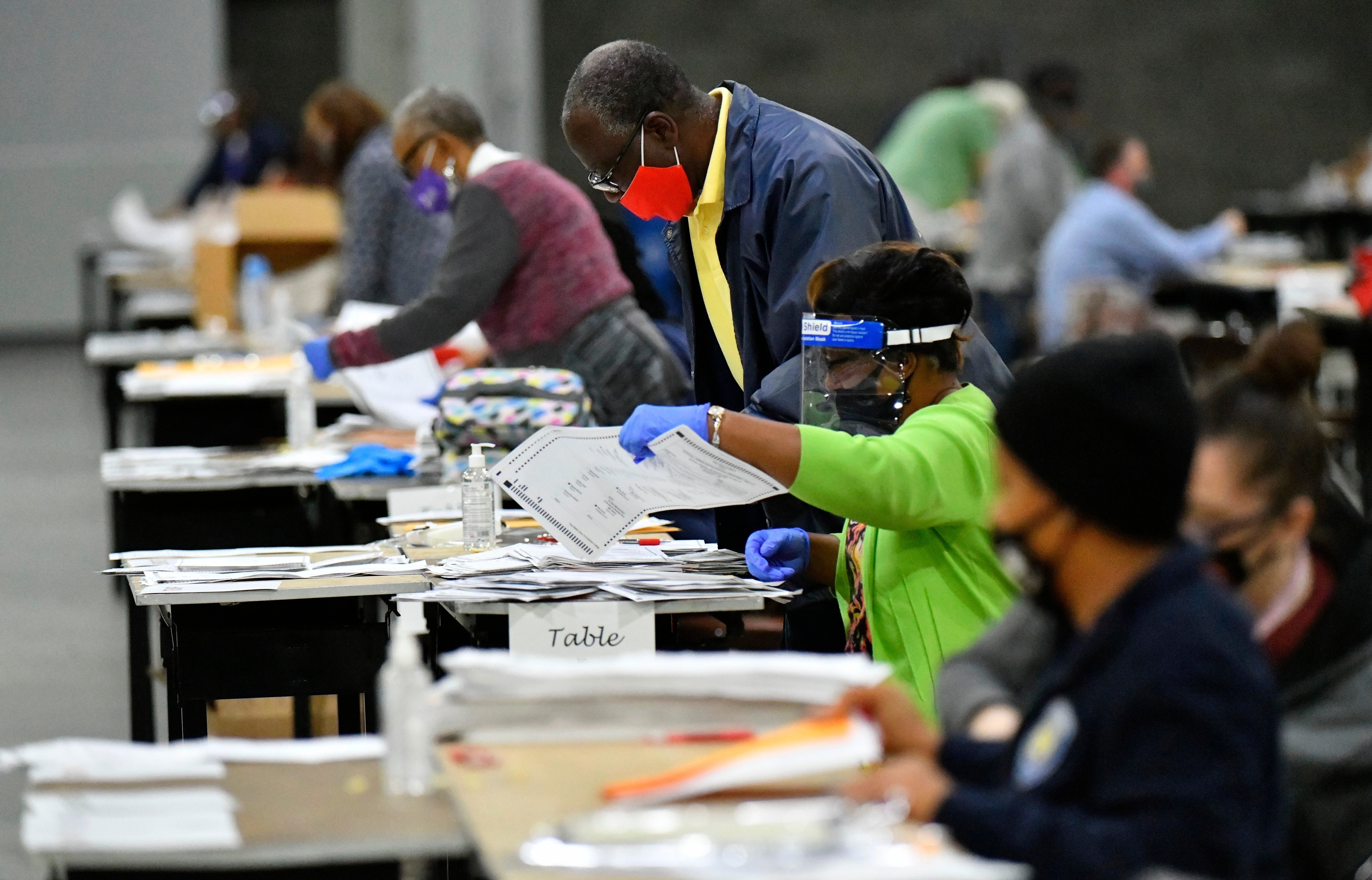Judge dismisses Fulton County ballot review case in Georgia
A judge has dismissed a lawsuit that alleged fraud in Georgia’s most populous county during the 2020 election and sought a review of some 147,000 absentee ballots to determine whether there are illegitimate ballots among them

Your support helps us to tell the story
From reproductive rights to climate change to Big Tech, The Independent is on the ground when the story is developing. Whether it's investigating the financials of Elon Musk's pro-Trump PAC or producing our latest documentary, 'The A Word', which shines a light on the American women fighting for reproductive rights, we know how important it is to parse out the facts from the messaging.
At such a critical moment in US history, we need reporters on the ground. Your donation allows us to keep sending journalists to speak to both sides of the story.
The Independent is trusted by Americans across the entire political spectrum. And unlike many other quality news outlets, we choose not to lock Americans out of our reporting and analysis with paywalls. We believe quality journalism should be available to everyone, paid for by those who can afford it.
Your support makes all the difference.A judge on Wednesday dismissed a lawsuit that alleged fraud in Georgia's most populous county during the 2020 election. The suit sought a review of some 147,000 absentee ballots in search of illegitimate votes, but no evidence emerged to justify such a broad search, the judge said.
The lawsuit was originally filed in December and said there was evidence of fraudulent ballots and improper ballot counting in Fulton County. It was filed by nine Georgia voters and spearheaded by Garland Favorito, a longtime critic of Georgia’s election systems.
Henry County Superior Court Chief Judge Brian Amero's order dismissing the case says the Georgia voters who brought the lawsuit “failed to allege a particularized injury” and therefore lacked the standing to claim that their state constitutional rights to equal protection and due process had been violated.
“All citizens of Georgia have a right to know whether or not counterfeit ballots were injected into the Fulton Co. election results, how many were injected, where they came from and how we can prevent it from happening again in future elections," Favorito wrote in an email. "It is not adequate for any organizations to secretly tell us there are no counterfeit ballots and refuse to let the public inspect them.”
He added that his team had “prepared diligently to show the evidence of our allegations” at a hearing Amero had previously scheduled for Nov. 15.
Fulton County Board of Commissioners Chairman Robb Pitts celebrated the lawsuit's dismissal.
“Today was a win for democracy," he said in an emailed statement. "This lawsuit was the result of the Big Lie, which is nothing more than a meritless conspiracy theory being spread by people who simply cannot accept that their side lost. Its defeat here today should echo throughout the nation."
The ballot review effort in Fulton County was one of a number of similar reviews and audits that supporters of former President Donald Trump and others pursued after alleging fraud during the 2020 general election. State and federal election election officials have repeatedly said there was no evidence of widespread fraud in the election.
Angered by his narrow loss in a traditionally red state, Trump focused his fury on Georgia, and particularly on Fulton County. He and his allies harshly criticized top Republican elected officials in the state for not acting to overturn his loss.
The lawsuit filed by Favorito and others relied heavily on sworn affidavits from several people who participated in a hand recount of the ballots that stemmed from a state audit requirement. They asserted that they saw suspicious-looking absentee ballots that looked as if they had been marked by machine rather than by hand and had not been creased as they would have been to fit in an envelope.
During a hearing last month, Amero had asked or an update into any investigations by the secretary of state’s office and Georgia Bureau of Investigation into allegations of fraudulent or counterfeit ballots in Fulton County.
Lawyers with the state attorney general’s office on Tuesday filed a response brief that details investigative steps taken in response to the claims. Investigators interviewed witnesses and examined about 1,000 absentee ballots and ballot images. They did not uncover any ballots matching those described by the people who swore affidavits or that otherwise appeared to be fraudulent or counterfeit, the brief says.
Investigators examined the ballots in the batches and box identified by one person who participated the hand count, but all had been creased and none appeared to have been marked by a computer. The woman then told investigators she may have been mistaken and gave them another box number, but investigators determined that the box-batch combination she cited didn’t exist.